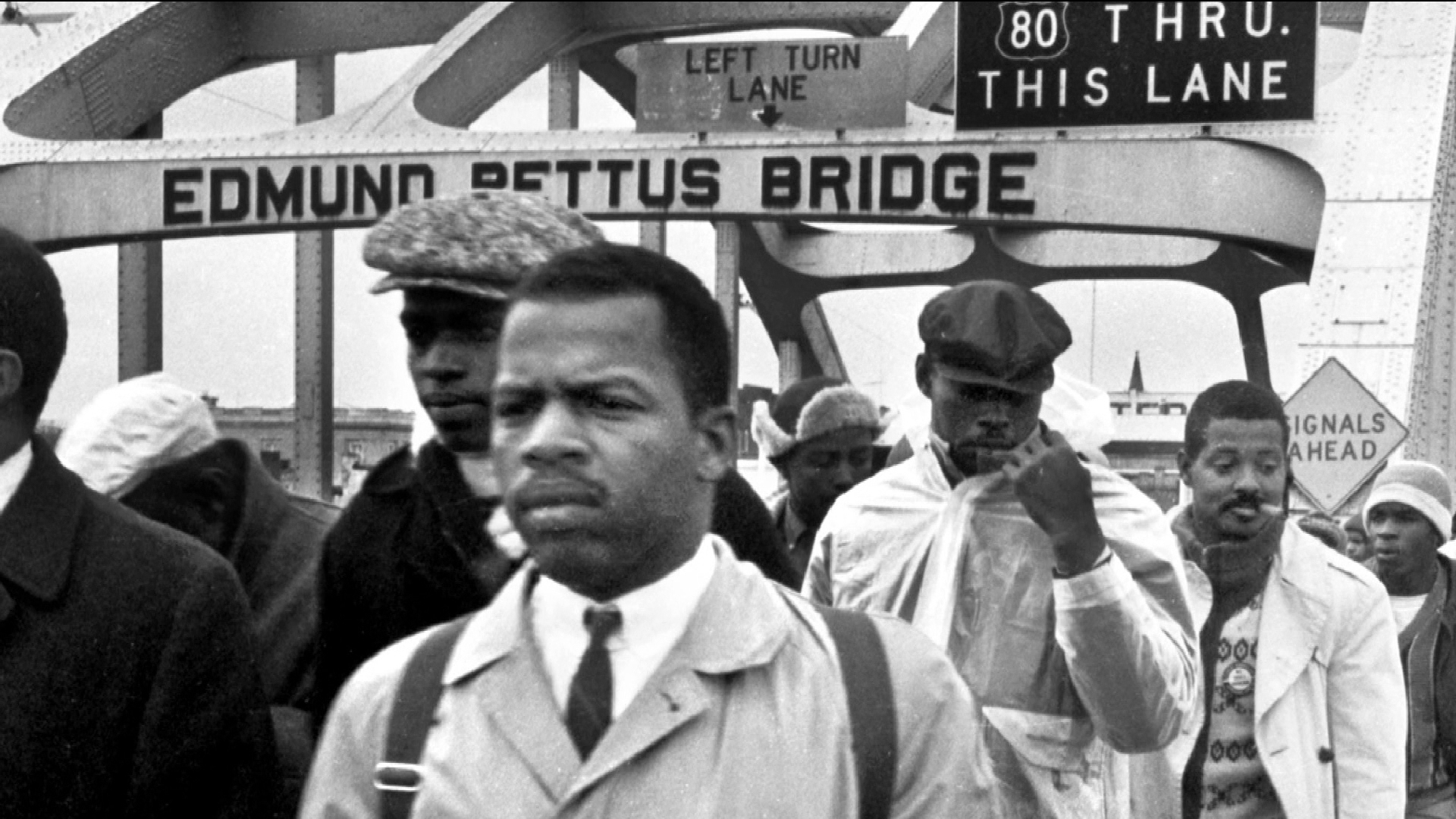Each time I hear stories about how Congressman John Lewis helped lead non-violent action as part of the civil rights movement in the 1960s, I am struck by how young he was when he began to confront racism and work for justice. At 15 years old, he heard about Rosa Parks’ arrest and the Montgomery, Alabama bus boycott. He heard sermons by Dr. Martin Luther King, Jr. on the radio. He was inspired by their example, and they mentored him in nonviolence.
John Lewis helped organize sit ins to integrate lunch counters when he was 20. He was among the 13 original Freedom Riders to protest segregation in interstate transit as a 21 year-old college student. At 25 he marched for voting rights in the face of violent police attacks on what was to be known as “Bloody Sunday.” John Lewis was just 23 years old when he helped plan and spoke at the March on Washington (as the youngest speaker).
He was arrested 40 times between 1960 and 1966. He was beaten over and over, often unconscious, in the struggle for civil rights for black people in the United States. Of course, John Lewis went on to serve in congress, to work for justice from within the halls of power, shaping and directing our nation. Yet his work for justice began when he was a college student.
In 2014, Congressman Lewis gave the commencement address at Emory University and he told the graduates, “You must find a way to get in the way. You must find a way to get in trouble. Good trouble. Necessary trouble. Use your education . . . use what you have, use your learning , use your tools, to help make our country and make our world a better place where no one will be left out or left behind. You can do it and you must do it. It is your time.”
I invite you to hear his words as a challenge for yourself. “Use your education, use your learning, use your tools . . . use what you have to help make our country and our world a better place, where no one will be left out or left behind. It is your time.” Where is the good trouble you are called to get into? How can you use your education and your resources to bring justice, equity, and love to the world? How can you use your privilege and power to change the world?
The core of John Lewis’ work was his faith. He was inspired by the teachings of Ghandi and Jesus. He worked to change the world through love and peace, to stand against hate and violence. As we remember John Lewis’ life and legacy this week, may we look for and find the ways we can help continue the struggle for justice for all.
Peace,
“In preparing for the sit-ins, we felt that the message was one of love — the message of love in action: don’t hate. If someone hits you, don’t strike back. Just turn the other side. Be prepared to forgive. That’s not anything any Constitution say anything about forgiveness. It is straight from the Scripture: reconciliation. So the movement, the early foundation, the early teaching of the movement was based on the Scripture, the teaching of Jesus, the teaching of Gandhi and others. You have to remind people over and over again that some of us saw our involvement in the civil rights movement as an extension of our faith.” -John Lewis 2004
More About John Lewis:
Biography from John Lewis’ Congressional Webpage
https://johnlewis.house.gov/john-lewis/biography
The Daily podcast from The New York Times
Commencement Address to Emory University 2014 (Lewis begins speaking at 2:45)
Interview with Religion and Ethics Newsweekly

